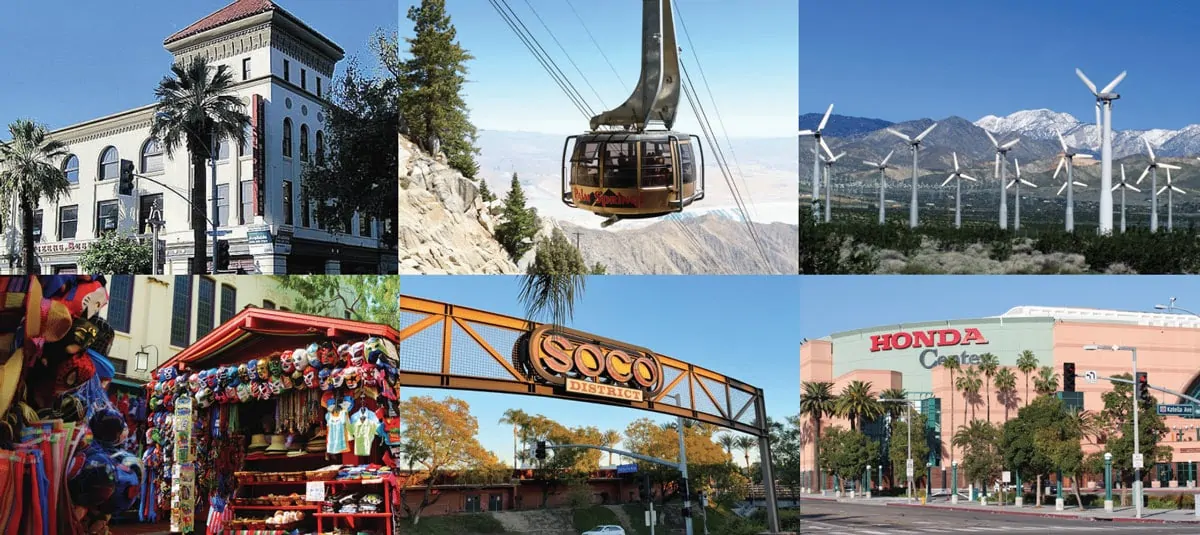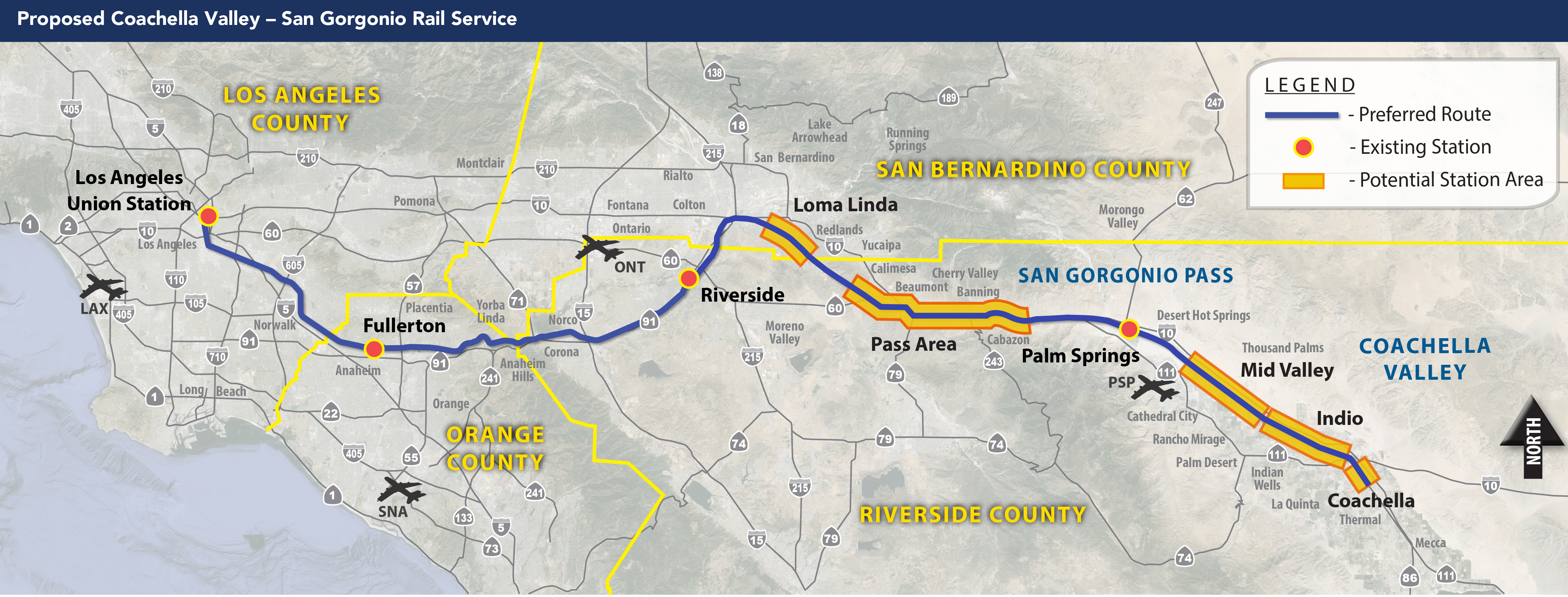The Point: Plans advance for passenger rail service between the desert and downtown L.A. to offer more mobility choices
Passenger rail service proposed between Los Angeles and the Coachella Valley took another step forward with RCTC’s unanimous certification of its “program level” environmental document on July 13.
Since 2016, RCTC, the Federal Railroad Administration, and Caltrans have been studying expanded travel options through passenger rail between L.A. and the Coachella Valley. Commissioners certified the Final Tier 1 Program Environmental Impact Statement/ Environmental Impact Report (EIS/EIR) for the Coachella Valley-San Gorgonio Pass Rail Corridor Service Program following a public hearing that was held as part of the Commission meeting.
The EIS/EIR studied and documented potential environmental impacts of operating this rail corridor service. Certifying the EIS/EIR will not lead to immediate construction and operations; additional Tier 2 or “project level” environmental review is needed before construction may begin. The certification of the EIS/EIR is considered a major milestone as it allows more in-depth Tier 2 “project level” environmental studies to proceed.
“Every day, the project is closer to becoming a reality as an alternative to driving to and from the Coachella Valley,” said RCTC 1st Vice Chair and Lake Elsinore Councilmember Bob Magee. “With the help of our state and federal partners, we continue to take steps toward service that will help our disadvantaged residents expand their travel and employment options, improve air quality for our region, and boost tourism and our desert economy,” he said.

The service is envisioned to begin with twice-daily roundtrips between L.A. Union Station and the Coachella Valley. The 144-mile route would include stops in Los Angeles, Orange, San Bernardino, and Riverside counties. Existing stations in Los Angeles, Fullerton and Riverside would be part of the line, the existing station in Palm Springs would be improved for use, and up to five new stations could be built east of Colton with a service endpoint in Coachella.
Work on the Tier 1 program-level environmental studies began in 2016. Last summer, the agencies released the draft environmental document for public review. During the 45-day public comment period, RCTC received 307 comments from public agencies, organizations, and individuals through multiple methods, including two virtual public hearings. Most comments supported the program.

With the certification of the Tier 1 program-level environmental document, RCTC is positioned to start work on Tier 2 project-level environmental studies when funding becomes available. These studies would perform an in-depth analysis of required infrastructure improvements and station locations.
RCTC is actively working with state and federal partners to secure $60 million for this next phase. Earlier this year, the project received a funding commitment of more than $25 million from the State Transportation Improvement Program, and RCTC requested Congressionally Directed Spending and Community Project Funding through the federal appropriations process. Ongoing support from stakeholder partners will help deliver this transformative project.
